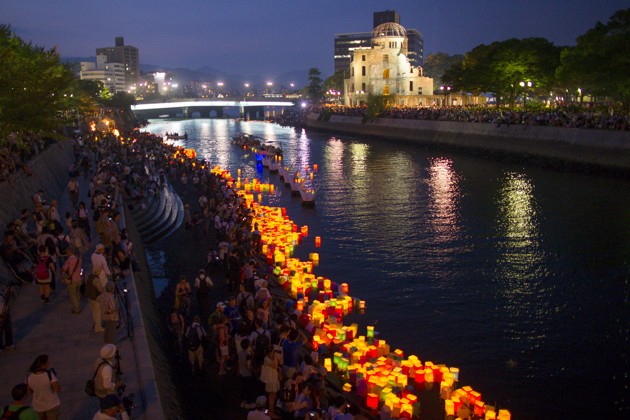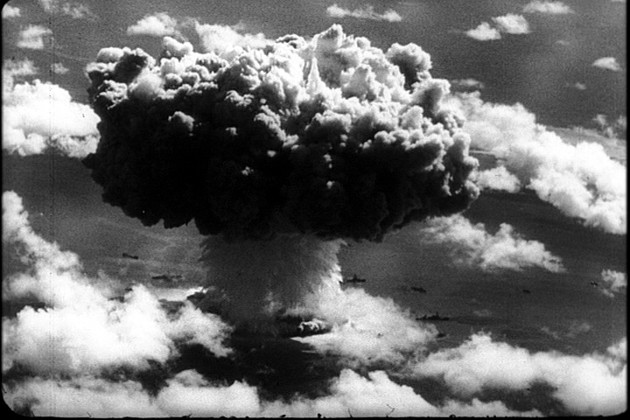

James Fallows in a very thoughtful essay discusses what everyone of us experienced as children crawling under desks in "air raid drills"- the hysteria induced by the masters of war. They built up inordinate fear of the USSR on the ground that they might do to us what we had done to the Japanese in Hiroshima and Nagasaki.
We all read John Hersey's long article/thin book Hiroshima. That was an important factor in the movement for nuclear disarmament, and the movement against the American war in Vietnam. Much of the leadership for which came from the "ban the bomb" movement.
President Obama is making the moving gesture of going to Hiroshima to acknowledge our role in the incineration of two cities. He will leave to others the debate about its necessity or its criminality. I long ago opted for the latter and it has deeply influenced my thinking ever since. -gwc
Obama Is Right to Go to Hiroshima, as an Act of Recognition Rather Than Apology - The Atlantic
by James Fallows
When my family first visited the Hiroshima museum in the mid-1980s, I noted a plaque that began (roughly): “In the springtime of 1945, the U.S. Army Air Force began a campaign of aerial bombardment of Japanese cities.” As a rendering of history, that was accurate but … not quite complete. When we lived in Japan our children went to Japanese public schools. In the sixth-grade world-history class that one of them took, the historical time-chart running along one wall showed a mainly blank space between about 1937 and the summer of 1945, when the start of the postwar era was delineated with a mushroom cloud.
It is understandable that Japan, again the only nation to have suffered the horrors of a nuclear attack, should think of itself mainly as a cautionary, sacrificial example to the world about nuclear risks. Today’s Japan is an unrecognizably different place from the one that terrorized the rest of Asia in the 1930s and ultimately attacked the United States. But the story of what did happen there, starting 80-plus years ago, involved more than Japan’s own sacrifice, and is a morally and historically complex one.
The story led to atomic disaster, which calls for sober recognition, and reflection on responsibilities past and future on all sides so as to ensure that nothing comparable ever happens again. Such recognition, and prescription, is what the President’s visit constitutes. It’s good that he is going.
No comments:
Post a Comment